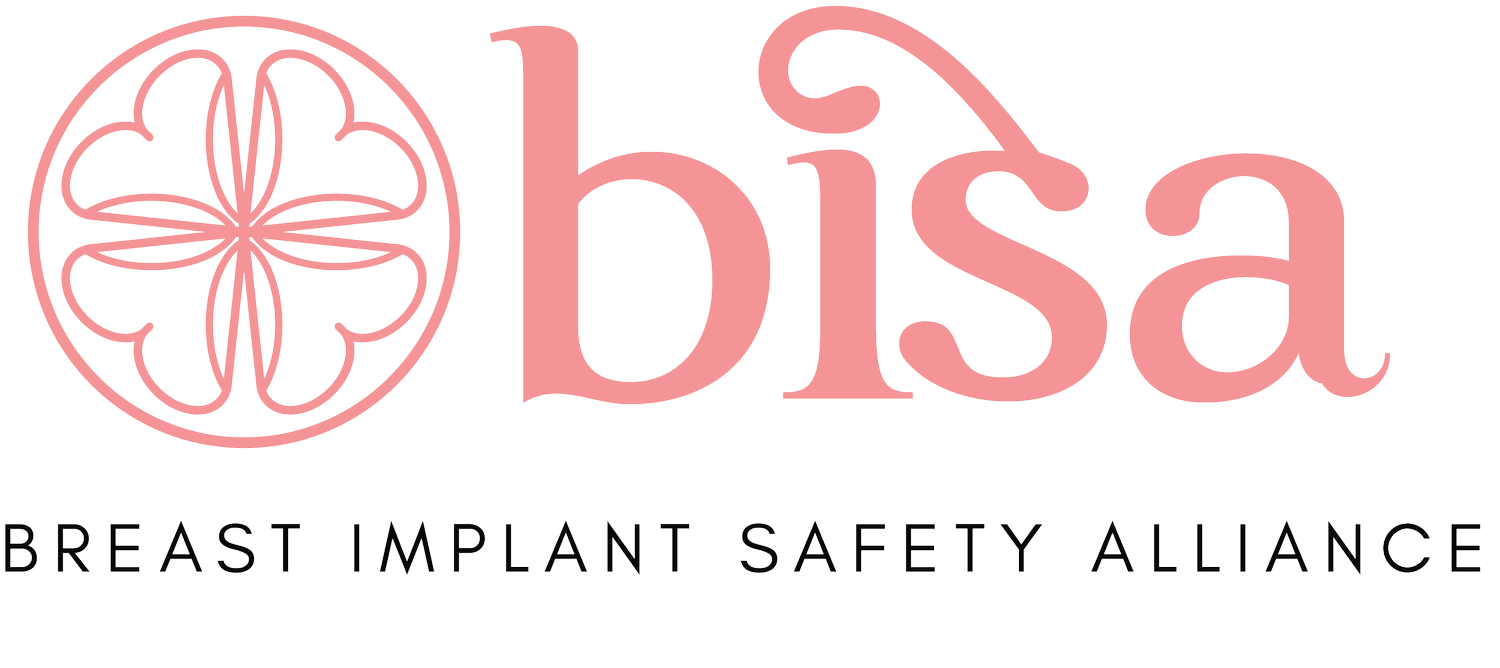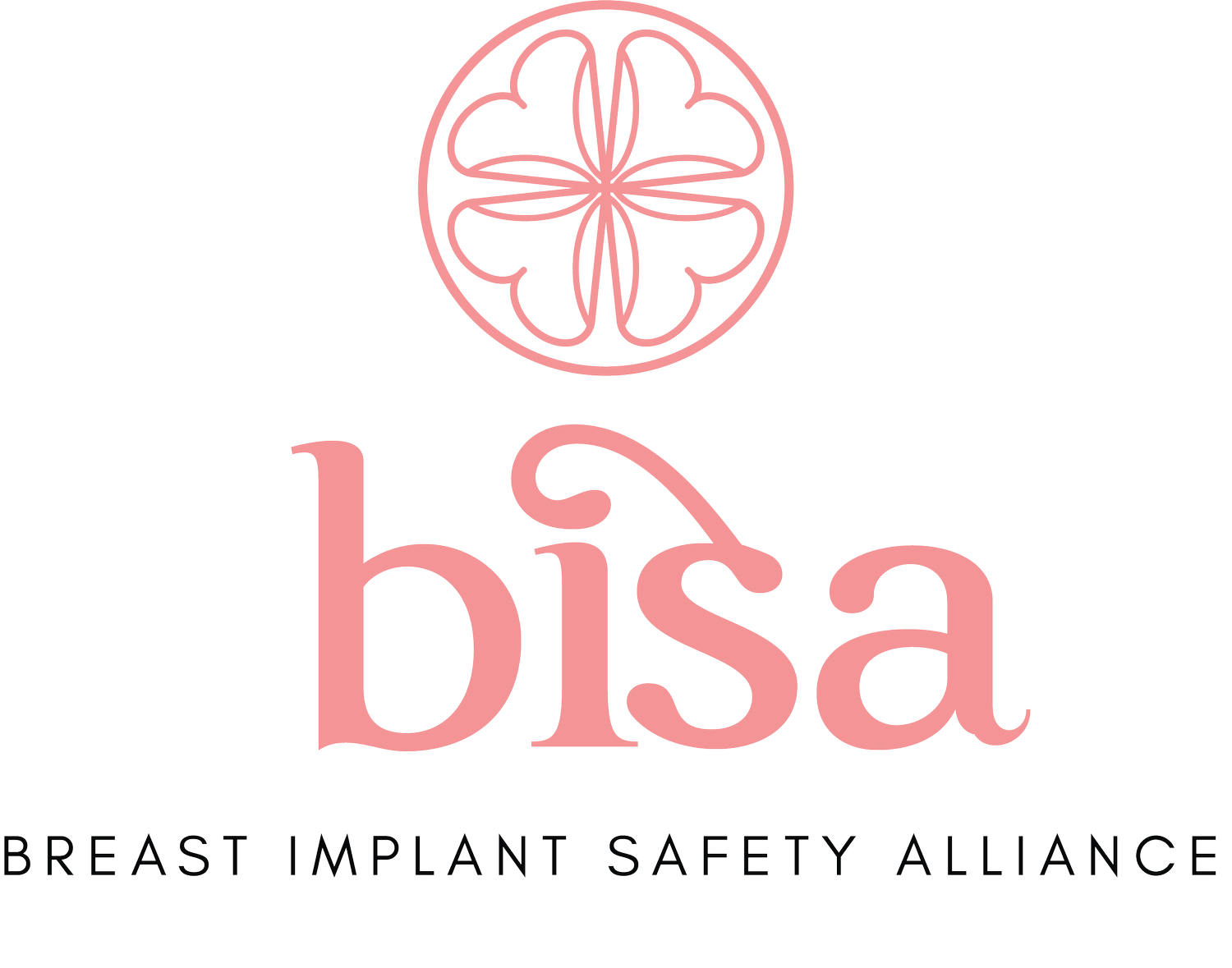New Study Links Silicone Breast Implants to Immune System Reactions and Autoimmune Markers
Emerging research continues to raise concerns about the safety of breast implants and the potential long-term health effects. A groundbreaking study titled “Breast implant silicone exposure induces immunogenic response and autoimmune markers in human periprosthetic tissue” has provided crucial biological evidence connecting silicone exposure to immune system reactions and autoimmune markers in periprosthetic human tissue.
Published in Biomaterials, the study was led by chemists, biologists and physicians from the Mulhouse Institute of Materials Science (CNRS/University of Haute Alsace), Besançon University Hospital, and the Institute of Genetics and Molecular and Cellular Biology (CNRS/INSERM/University of Strasbourg).
How Silicone from Breast Implants Leak into the Body
After a breast implant is placed, the body will form a scar capsule. This layer of fibrous tissue is part of the body's normal immune response to a foreign object. The scar capsule may serve as a protective shell however it is still permeable and not a perfect barrier. Research shows that silicone from implants can still migrate into surrounding tissues through various pathways, even when the outer shell appears intact.
Surface Erosion – Tiny solid particles wear off the implant's outer shell over time.
Gel Bleed – Small amounts of silicone gel seep through the implant shell.
Implant Ruptures – Some implants break without immediate symptoms, releasing large amounts of silicone into the body.
What Happens When Silicone Enters the Body?
The research team examined tissue samples from patients with both intact and ruptured implants. Even when there was no visible leak, silicone exposure still triggered an immune response. The body’s immune cells, known as macrophages, attempt to remove silicone but they can't break it down. When these cells eventually die, they release the silicone back into the surrounding tissue, which can trigger persistent inflammation and place continued strain on the immune system.
When the immune system is activated, inflammatory chemicals called cytokines send distress signals to the brain, causing symptoms like fatigue, brain fog, and a sense of feeling unwell. This biological response has often been misunderstood or dismissed in regards to breast implants.
Links to Autoimmune Diseases and Cancer
Autoimmune markers are substances found in the blood that indicate the immune system may be mistakenly targeting the body’s own tissues. These markers help doctors assess the possibility of autoimmune diseases, where the immune system attacks healthy cells. While the presence of these markers doesn't always mean a person has a diagnosed condition, it can signal that the immune system is not functioning properly. The study found that certain genes linked to autoimmune diseases, such as rheumatoid arthritis and lupus, were activated in affected tissue samples.
Researchers also found that implants with rougher surfaces (called macrotextured implants) caused a stronger reaction from the immune system compared to smoother ones. This might help explain why some types of implants have been linked to an uncommon but serious cancer called Breast Implant-Associated Anaplastic Large-Cell Lymphoma (ALCL).
Why This Study Matters
For years, health authorities have deemed silicone breast implants safe, despite ongoing reports of breast implant illness (BII) symptoms and immune-related complications. This new study presents biological proof of how silicone exposure (to tissues and cells) could contribute to immune system dysfunction. Even without obvious symptoms, silicone exposure can have long-term consequences.
For women with implants, this study suggests that even if they don’t have symptoms now, silicone exposure could still be impacting their immune system. Those already experiencing health issues may have more evidence to support concerns about breast implant illness (BII).
For women who had implants removed, it raises questions about long-term effects, even after removal, since silicone particles can linger in the body and continue triggering immune responses. This, combined with studies speaking to silicone, migration can amplify concerns.
For those considering implants, it highlights the importance of fully understanding the potential risks, not just what manufacturers and surgeons promote, but what independent research is beginning to reveal about immune system dysfunction and long-term health impacts.
The study's authors call for:
A re-evaluation of past clinical studies to determine the full extent of implant-related health risks.
Stronger safety regulations and oversight on breast implant design, materials, and manufacturing processes.
A push for industry-wide improvements in implant materials to reduce health risks.
Silicone Can Stay in the Body and Cause Inflammation Even After Implant Removal
Another recent study published in Plastic and Reconstructive Surgery – Global Open found that silicone can remain in the body long after breast implants are removed, potentially causing chronic inflammation and immune reactions. BISA medical advisor Dr. Siham Azahaf co-authored the research, which used PET imaging to detect lingering silicone residues in lymph nodes, the chest, and other tissue, even 11 years post-explant.
This raises concerns for women with ongoing Breast Implant Illness (BII) symptoms, such as fatigue, joint pain, and autoimmune-like reactions. While implant removal may help some, the study highlights the need for better diagnostics, continued research, and stricter safety regulations.
“The health of women with breast implants must be a priority in medical research, not an afterthought. Too many women have been left without answers, proper care, or recognition of their symptoms. It’s time for the medical community to take these concerns seriously, invest in independent research, and help women receive the monitoring, support, and informed care they deserve.”
Could Your Breast Implants Be Impacting Your Health?
The FDA has reviewed thousands of reports of women experiencing systemic symptoms often referred to as Breast Implant Illness (BII). While some find relief after explanting, the cause has remained unclear. Breast Implant Illness is not officially, universally accepted or recognized as a distinct diagnostic entity, and for years, BII symptom complaints have been dismissed as simply anecdotal because there wasn’t enough scientific proof connecting implants to systemic symptoms like fatigue, brain fog, joint pain, and inflammation.
Many of the older studies that attempted to find or examine a link to implants and concerns about symptom onset had concluded that more studies were needed. This new study may produce a major impact on women who have/had/considering breast implants by providing such measured biological evidence linking silicone exposure to immune system responses and autoimmune markers.
The Urgent Need for Transparency and Patient Safety
Reporting device related health problems to the FDA is not mandatory and breast implant tracking has serious shortfalls, including underreporting and missing data. Breast Implant Safety Alliance (BISA) has long advocated for greater transparency, stricter regulations, and improved patient protections regarding breast implants. This new research reinforces the importance and need for informed consent, regular medical monitoring, and stronger regulatory oversight.
BISA’s Laura Willging, RN and a Board Certified Patient Advocates shared:
“As someone who has personally experienced negative health consequences from breast implant devices, I find this research to add significant tangible insight towards the growing body of evidence which seems to support what countless women, including myself, have been expressing concern about for years regarding the potential impact of breast implants on overall health. Implant related silicone material apparently doesn’t simply clear from the body, and without (cellular) consequence. Added to that are prior studies finding silicone particle migration away from the chest region. Studies that reveal an inflammatory nature of such silicones in cellular environment(s) have caused me much pause and reflection with an important quizzical repeat question as to ‘when has inflammation become normalized for women’ and what may be the potential long-term effects on the body’s immune system. need to be taken seriously.
Despite years of advocacy, the breast implant industry and regulators have seemed to continuously overlook the depth of seriousness of patient concerns. Patient-consumer’s are the product end-users and have a unique offering of valuable post-implant feedback, much more subjective offerings, which are for obvious reasons, not available in animal studies We are the only ones (humans) who can linguistically voice current and anticipatory concerns in such regard, yet our voices aren’t always heard. Which does not lend well to goals of desire for patient empowerment nor towards trusting relationship building and shared decision making, in regard to healthcare. Myself and many grow tired of being cast to a ‘low risk’ divisory when reporting implant related concerns or sequela, in part because we are representing women globally and are also attempting to help get the trolley back on track. Often under-appreciated is the spectrum and domino effect of chronic illness burden; from individual through to broader economical impacts.
To have this current, objective scientific evidence that could support women’s symptoms feedback seems promising. Time will reveal how this may be applied to both healthcare and innovation.
This study may provide a crucial step towards hope for improved health related care, support,and protection for women (and all) with implants by providing important biological evidence suggesting that silicone exposure may contribute to chronic inflammation and autoimmune responses.”
If you or someone you know has experienced health issues related to breast implants, consider speaking with a healthcare provider and reporting symptoms to regulatory agencies like the FDA’s MedWatch Program. Your voice helps push for more independent research and policy changes.
Study Reference:
Breast implant silicone exposure induces immunogenic response and autoimmune markers in human periprosthetic tissue
Isabelle Pluvy, Eve Randrianaridera b , Ismail Tahmaz, Martine Melin, Florelle Gindraux, Céline Keime, Arnaud Ponche, Tatiana Petithory, Laurent Pieuchot, Karine Anselme & Isabelle Brigaud.
Biomaterials 2025
https://doi.org/10.1016/j.biomaterials.2024.123025
Resources & References
Biomaterials: Breast implant silicone exposure induces immunogenic response and autoimmune markers in human periprosthetic tissue
https://www.techno-science.net/en/news/silicone-breast-implants-toxicity-called-into-question-N26744.html
The Hidden Risk of Silicone Residues: What Every Woman with Breast Implants—Past or Present—Needs to Know
FDA: Medical Device Reports for Systemic Symptoms in Women with Breast Implants
The Role of Positron Emission Tomography Imaging in Breast Implant Illness
FDA: What to Know about Breast Implants
Breast Implant Iatrogenics: Challenging the Safety Narrative
US FDA Breast Implant Postapproval Studies: Long-term Outcomes in 99,993 Patients
Largest-Ever Study Shows Silicone Breast Implants Associated with Rare Diseases
The Role of Positron Emission Tomography Imaging in Breast Implant Illness
FDA: What to Know about Breast Implants
BISA: What All Women Should Know About Breast Implants
Breast Implant Safety Alerts & Updates
About Breast Implant Safety Alliance (BISA)
The Breast Implant Safety Alliance (BISA) is the largest organization of board-certified patient advocates and subject matter experts in the world dedicated to patient and consumer safety relating to breast implants. Representing the millions of individuals worldwide that currently have, had, or are considering breast implants, the alliance is a non-industry funded leading authority dedicated to providing balanced, evidence-based information for informed decision making about breast implant surgery and related issues. Founded in 2019 by women, BISA is a grassroots nonprofit organization led by volunteers who do not receive a salary for their work.
Contact: Maria Gmitro, President | maria@bisanonprofit.org


